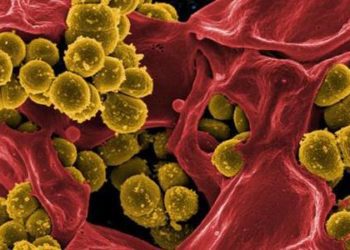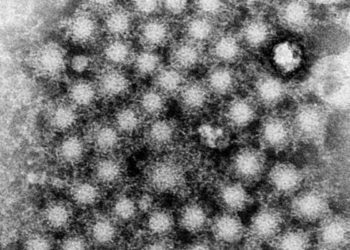Ziresovir reduces the severity of respiratory syncytial virus in hospitalized infants
1. Ziresovir, an antiviral drug targeted at respiratory syncytial virus (RSV), was superior to placebo in reducing signs and symptoms of hospitalized young children with RSV infection.
2. The incidence of adverse events was similar between ziresovir and placebo.
Evidence Rating Level: 1 (Excellent)
Study Rundown: RSV infection, also called bronchiolitis, is a common cause of hospitalization and death among children and the elderly. Although vaccines are available for older adults and pregnant persons, none are approved for children. Currently, approved therapies for severe bronchiolitis have limited efficacy, unfavorable safety profile, and limited indications. Ziresovir is an oral antiviral drug targeting RSV that has shown promise preclinically. This study evaluated ziresovir in treating RSV infections in hospitalized children between 1 and 24 months of age. By day three, ziresovir was superior to placebo in reducing bronchiolitis clinical score from baseline and by day five, in reducing RSV viral load. The incidence of adverse events was comparable between ziresovir and placebo, with the most common being diarrhea, elevated liver enzymes, and rash. Notably, drug resistance-related mutations occurred in 9% of the recipients of high-dose ziresovir. The study was limited by the use of a clinical score that had not been fully validated and by a solely Chinese participant pool. Nonetheless, these findings demonstrated the efficacy of ziresovir in treating RSV and warranted further investigation into its use.
Click here to read the study in NEJM
In-Depth [randomized controlled trial]: This study was a randomized controlled trial to assess the efficacy and safety of ziresovir in treating RSV infections in infants and younger children. Children between 1 and 24 months of age (adjusted for prematurity) with a body weight between 2.5 and 10kg who were hospitalized with RSV infections confirmed by virologic methods by 36 hours before randomization and a Wang bronchiolitis clinical score ≥5 were eligible for inclusion. Exclusion criteria included human immunodeficiency virus, primary immunodeficiency condition, and concurrent influenza infection or bacterial pneumonia. A total of 311 participants were randomized 2:1 to receive ziresovir every 12 hours for five days. The primary outcome was a change from baseline to day three in the Wang bronchiolitis clinical score, consisting of respiratory rate, wheezing, respiratory muscle reaction, and general condition. By day three, the change from baseline in the Wang bronchiolitis clinical score in the ziresovir group was -3.4 points (95% confidence interval [CI] -3.7 to -3.1), which was significantly greater than -2.7 points in the placebo group (95% CI -3.1 to -2.2) (difference -0.8 points, 95% CI -1.3 to -0.3, p=0.002). Similar improvements were also observed in the subgroups of participants with a baseline Wang clinical score ≥8 (difference -1.0, 95% CI -1.8 to -0.1) and participants at six months of age or younger (difference -1.2, 95% CI -1.9 to -0.6). The incidence of adverse events was comparable between the ziresovir (16%) and the placebo (13%) groups, with the most common being diarrhea (4% and 2%, respectively), elevated liver enzyme (3% in both groups), and rash (2% and 1%, respectively). Drug resistance-related mutations arose in 15 (9%) of participants in the ziresovir group, all of whom received the higher dose of the drug, whereas none was seen in the placebo group. In summary, these findings corroborated results from previous trials of ziresovir and prompted further investigation into its use in treating severe RSV infection.
Image: PD
©2024 2 Minute Medicine, Inc. All rights reserved. No works may be reproduced without expressed written consent from 2 Minute Medicine, Inc. Inquire about licensing here. No article should be construed as medical advice and is not intended as such by the authors or by 2 Minute Medicine, Inc.









